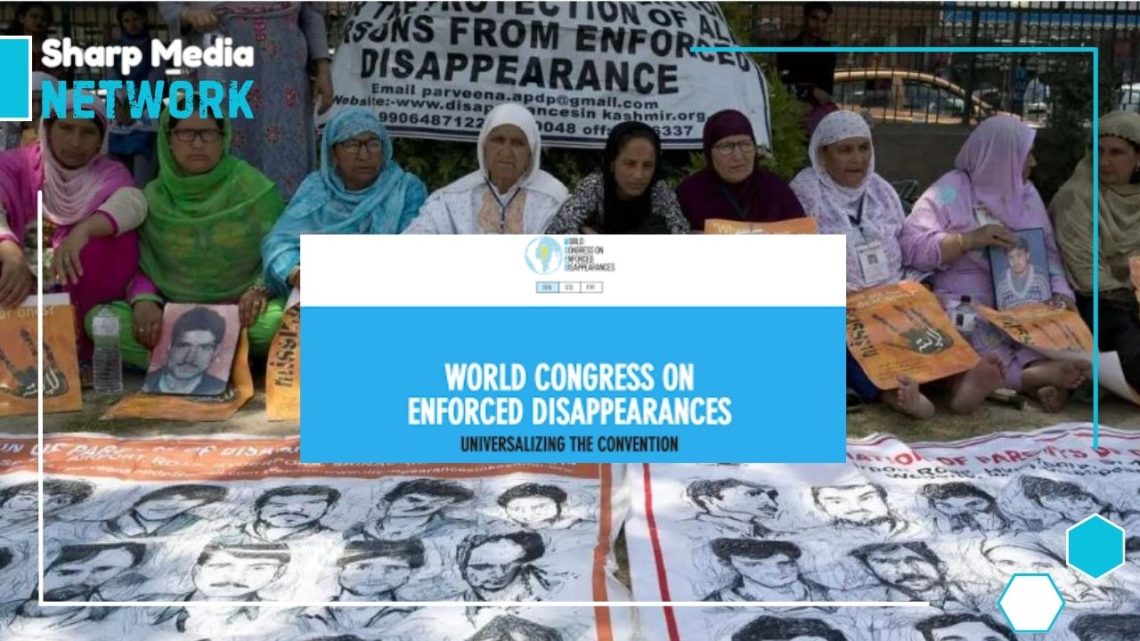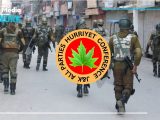
A Global Outcry on Enforced Disappearances in IIOJK
January 17, 2025International experts have raised their voices against India’s use of enforced disappearances in IIOJK, condemning it as a crime against humanity, and urging the global community to hold India accountable for its grave human rights violations.
The use of enforced disappearances by Indian authorities in Indian Illegally Occupied Jammu and Kashmir (IIOJK) has drawn widespread condemnation from international human rights advocates. At the World Congress on Enforced Disappearances (WCED) held in Geneva on January 15-16, experts and human rights organizations collectively decried the practice as a severe violation of human rights, calling it a crime against humanity. This global forum marked a significant step in the fight against enforced disappearances, an issue that continues to plague Indian Illegally Occupied Jammu and Kashmir.
Enforced disappearances in IIOJK have been rampant since 1989, with more than 10,000 individuals reported missing while in Indian custody. Human rights organizations, such as the Jammu and Kashmir Coalition of Civil Society (JKCCS) and the Association of Parents of Disappeared Persons (APDP), have been at the forefront of documenting these violations. Led by prominent activists like Pervez Imroz and Parveena Ahangar, both organizations have tirelessly advocated for justice and accountability.
However, these human rights defenders face severe mobility restrictions, making it difficult for them to participate in global forums and highlight the atrocities committed in IIOJK. Figures such as Khurram Parvez and Parveena Ahangar, who have been key in drawing attention to the disappearances, are also subjected to incarceration and bureaucratic barriers aimed at silencing their efforts.
One of the most chilling discoveries in the ongoing investigations into human rights abuses in IIOJK is the revelation of over 2,900 bodies in unmarked mass graves. These findings were uncovered by the International People’s Tribunal on Human Rights and Justice in IIOJK, which found that the majority of those buried were Kashmiri civilians, not foreign militants as claimed by India. This revelation has further exposed the extent of state-sponsored violence and the cover-up by Indian authorities, who continue to deny these widespread violations.
India’s draconian laws, such as the Armed Forces Special Powers Act (AFSPA) and the Public Safety Act (PSA), have played a significant role in perpetuating enforced disappearances in IIOJK. These laws grant security forces immunity from prosecution, fostering a culture of impunity that allows abuses to continue without consequence. The lack of accountability under these laws has made it even more difficult for families of the disappeared to seek justice, further exacerbating their suffering.
The impact of enforced disappearances on the families of the victims is devastating. Over 200,000 relatives, primarily women, are actively seeking information about their loved ones. These families face not only psychological trauma but also significant social and economic hardships. The stigma of having a missing family member, compounded by years of government denial and neglect, has left these individuals in a perpetual state of grief.
Despite global calls for accountability, India has failed to ratify the International Convention for the Protection of All Persons from Enforced Disappearances, which would legally oblige it to prevent such practices. This refusal highlights India’s disregard for international human rights norms and its lack of commitment to addressing the plight of the Kashmiri people.
The international community has continued to press for an independent inquiry into the enforced disappearances and the mass graves in IIOJK. Human rights organizations and global leaders are calling for India to be held accountable for its violations, demanding transparency and justice for the families whose lives have been shattered by these crimes.
The issue of enforced disappearances in Indian Illegally Occupied Jammu and Kashmir is not just a local human rights issue; it is a global concern. The international community must continue to demand justice and accountability from India, pressuring it to end the impunity that has allowed these violations to persist for decades. As the voices of the disappeared grow louder, it is crucial that global institutions stand in solidarity with the people of IIOJK, working towards a future where such atrocities are no longer tolerated.

